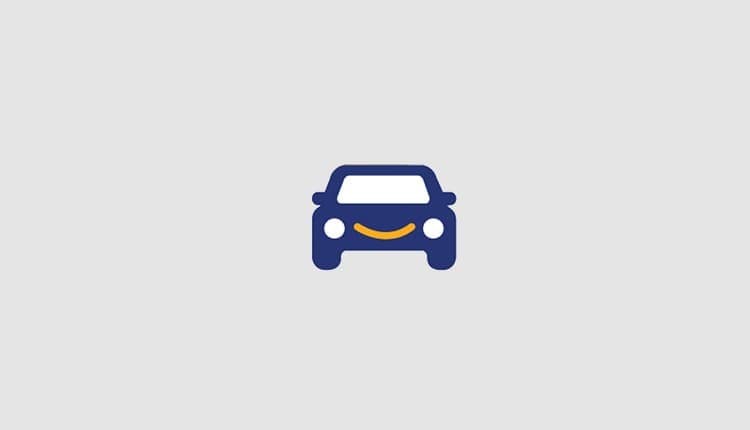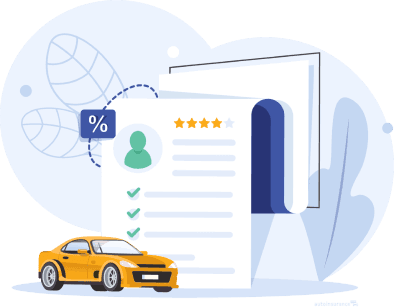
Car Insurance in California with a DUI
In addition to legal penalties and fines, car insurance rates increase by an average 145 percent after a DUI in California.
Get quotes from providers in your area

In 2022, 4,428 people died in car crashes in California, with one-third of fatalities involving a driver with a BAC of 0.08 or higher, according to National Highway Traffic Safety Administration data.
California punishes DUI convictions with imprisonment, fines, license suspensions, SR-22s, and points on your driving record. On top of that, the cost of your car insurance could more than double with a DUI conviction on your driving record.
DUI Laws in California
We’ve compiled all of the DUI penalties according to the California Legislature.
Penalties
These are the penalties for private drivers who drive for personal reasons. However, there are different penalties and BAC maximums for commercial and rideshare drivers. Instead of the standard 0.08 percent for drivers 21 and over, the maximum BAC for these groups is 0.04 percent.
| DUI penalties by BAC | 0.08% and higher | 0.05% and higher | |||
|---|---|---|---|---|---|
| Age of driver | 21 and older | 21 and older | 21 and older | 21 and older | Under 21 |
| Offense number | 1 | 2nd within 10 years of 1st violation | 3rd within 10 years of 1st violation | 4th or subsequent within 10 years of 1st violation | 1 |
| Minimum imprisonment | 96 hours to 6 months (at least 48 continuous unless it would affect person’s work schedule) | 90 days | 120 days | 180 days | None |
| Maximum jail time | 6 months | 1 year | 1 year | 3 years | None |
| Minimum fine | $390 | $390 | $390 | $390 | $100 |
| Maximum fine | $1,000 | $1,000 | $1,000 | $1,000 | $250 |
| Driving privilege suspension | Up to 6-month license suspension | 2-year license suspension | 3-year license revocation | 4-year license revocation | 1-year license suspension |
| Participation in licensed DUI program | Yes | Yes | Yes | Only if they have never participated | Yes |
| SR-22 required | Yes | Yes | Yes | Yes | Yes |
| Ignition interlock requirement | Non-injury offense: Not required
Injury or vehicular manslaughter offense: 1 year | Non-injury offense: 1 year
Injury or vehicular manslaughter offense: 2 years | Non-injury offense: 2 years
Injury or vehicular manslaughter offense: 3 years | Non-injury offense: 3 years
Injury or vehicular manslaughter offense: 3 years | Non-injury offense: Not required
Injury or vehicular manslaughter offense: 1 year |
| Points on driver’s license | 2 | 2 | 2 | 2 | 2 |
NOTE:
California’s ignition interlock requirement is part of a statewide pilot program. It applies to offenses between Jan. 1, 2019, and Dec. 31, 2025.
You can install an ignition interlock device to obtain restricted license privileges, even if the court doesn’t require it. The other option to get a restricted license is to enter an employment/treatment program. With a restricted license, you’ll be able to drive to and from your job and DUI program. Both options require a $55 or $125 reissue fee (depending on whether the court or the California DMV ordered your license suspension) and a $15 restriction fee.
Penalties for Underage Drinkers
Drivers under 21 must have a BAC below 0.01%. Aside from license suspensions, young drivers convicted of DUI may be required to participate in California’s Youthful Drunk Driver Visitation Program in order to discourage recidivism. During this program, they may visit trauma facilities, morgues, or coroners’ offices to see firsthand the consequences of drunk driving.
How Long a DUI Offense Stays on Your Record
In California, a DUI will stay on your record for 10 years. After 10 years, it may not be on your driving record, but it will remain on your criminal record indefinitely.
Are SR-22s Required?
You’ll need to have your insurance company file an SR-22 with California’s Department of Motor Vehicles (DMV). An SR-22 proves that you have the state’s minimum required coverage. You’ll typically have to maintain it for three years following your reinstatement date.
While the filing fee is only $15 to $40, SR-22 insurance is more expensive, as it designates you as a high-risk driver with a bad driving history.
How a DUI Affects Your Car Insurance
Car insurance in California can be expensive, especially after a DUI.
Average Costs
On average, car insurance in California costs 145 percent more after a DUI than for someone with a clean driving record. Here are the average rates by company:
| Average annual cost of car insurance in California | Clean record | DUI | Percentage increase |
|---|---|---|---|
| Overall | $1,939 | $4,757 | 145% |
| Mercury | $1,236 | $3,027 | 145% |
| GEICO | $1,161 | $3,662 | 215% |
| Progressive | $1,361 | $3,307 | 143% |
| Farmers | $3,240 | $3,569 | 10% |
| AAA | $1,817 | $5,188 | 186% |
| State Farm | $1,376 | $5,260 | 282% |
| CSAA | $1,910 | $7,340 | 284% |
Will You Be Covered?
According to the California Insurance Code, insurance companies can cancel your policy if your license or registration is suspended or revoked. However, companies must inform you at least 20 days before your policy expires. Keep in mind your coverage won’t work retroactively, so you may be responsible for your damages.
How to Find Car Insurance After a DUI
It is possible to find car insurance in California after a DUI, but it may be difficult.
Best and Cheapest Options
Based on their low average rates, Mercury, Progressive, and Farmers are the cheapest and best DUI insurance companies in California.
Alternatives
If you’ve shopped the market and can’t find a provider, California offers the California Automobile Assigned Risk Plan as a last resort. Under the plan, you’re guaranteed coverage. Use the below contact information to learn more:
- Website: California Automobile Assigned Risk Plan
- Mailing address:
- California Automobile Assigned Risk Plan
- P.O. Box 6530
- Providence, RI 02940-6530
- Office hours: Monday through Friday, 8:00 a.m. through 4:30 p.m. PT
- Phone number: 800-622-0954
- Email: caarp@aipso.com
FYI:
Another option is to self-insure your vehicles. However, that will require a $35,000 cash deposit with the DMV or in a surety bond from a California-licensed business. Call 916-657-6520 to learn more about self-insurance.
How to Save
Finding cheap car insurance in California may be next to impossible with a DUI on your record, but here are some ways to keep your premium as low as possible.
- Get minimum coverage. California’s minimum car insurance requirement includes liability insurance only in the amounts of $15,000/$30,000/$5,000. Buying liability coverage only will be the least expensive option, but keep in mind that it will not pay for any of your or your passengers’ bodily injuries, deaths or property damage. You’d need medical payments and collision coverage, which will add to your car insurance premium.
- Bundle multiple policies. You can save money by bundling policies, such as home and car, under the same provider.
- Ask for discounts. You may be eligible for discounts for enrolling in paperless billing or usage-based insurance for low-mileage drivers. Ask your insurance agent for ways to save.
Recap
A DUI will raise your insurance rates in California, and potentially make it difficult to find insurance at all. As a last resort, finding high-risk car insurance is possible in California through the state’s assigned risk pool.
To keep your car insurance premium low and avoid penalties, make sure your BAC is under 0.08 percent if you’re 21 or over, or under 0.01 percent if under 21, before you drive. Additionally, avoid reckless driving in any form, and make sure you have proof of insurance anytime you drive.
Frequently Asked Questions
While California has tough license suspensions and revocations following a DUI conviction, it is lax when it comes to fines and imprisonment. For example, no matter the offense number, fines will be between $390 and $1,000, and the maximum imprisonment is one year for first and second offenses. Imprisonment time increases to three years after the third and subsequent DUI offenses. Plus, each offense will add only two points to your driver’s license, which is relatively minimal.
To get a DUI dismissed in California, you will need to prove that you were not driving with a BAC of 0.08 percent for those 21 and over or 0.01 percent for those under 21. Common defenses include an incorrect breathalyzer test. Your best chance of getting a DUI dismissed is to hire a DUI attorney, as even a first offense could result in up to six months of imprisonment.
- The police officer will forward your notice of suspension or revocation and your driver’s license to the DMV.
- The DMV will review the officer’s report, suspension or revocation order, and test results, such as a breathalyzer test.
- You have 10 days to request an administrative hearing regarding your suspension or revocation.
- You must appear if you are scheduled to appear in criminal court for your DUI charge.
- If you are found guilty, you will face penalties, including fines, imprisonment, and an ignition interlock requirement.
- Finish the mandatory suspension period.
- Buy at least the minimum amount of insurance required in California.
- Have your insurance company file an SR-22, a form proving you have at least the minimum, with the state’s DMV.
- Apply for a reinstatement with California’s Department of Motor Vehicles online.
- Pay the $55 or $125 reissue fee (depending on whether the California DMV or the court instated your suspension). Those under 21 at the time of the violation, the fee is $100.
- Show proof that you enrolled and completed a DUI treatment program via a DL-101 certificate of completion.
Citations
MISDEMEANOR PLEA ATTACHMENT: DUI PENALTIES. SUPERIOR COURT OF THE STATE OF CALIFORNIA, COUNTY OF ALAMEDA.
https://www.alameda.courts.ca.gov/system/files?file=ala-cr-002b-misdemeanor-plea-attachment-re-dui-penalties.pdfFINANCIAL RESPONSIBILITY (INSURANCE) REQUIREMENTS FOR VEHICLE REGISTRATION. State of California Department of Motor Vehicles. (2023).
https://www.dmv.ca.gov/portal/driver-education-and-safety/educational-materials/fast-facts/financial-responsibility-insurance-requirements-for-vehicle-registration-ffvr-18/Automobile Insurance Information Guide. California Department of Insurance. (2018, Feb).
https://www.insurance.ca.gov/01-consumers/105-type/95-guides/01-auto/auto101.cfmCalifornia Automobile Assigned Risk Plan. AiPSA. (2023).
https://www.aipso.com/Plan-Sites/California-ARP
